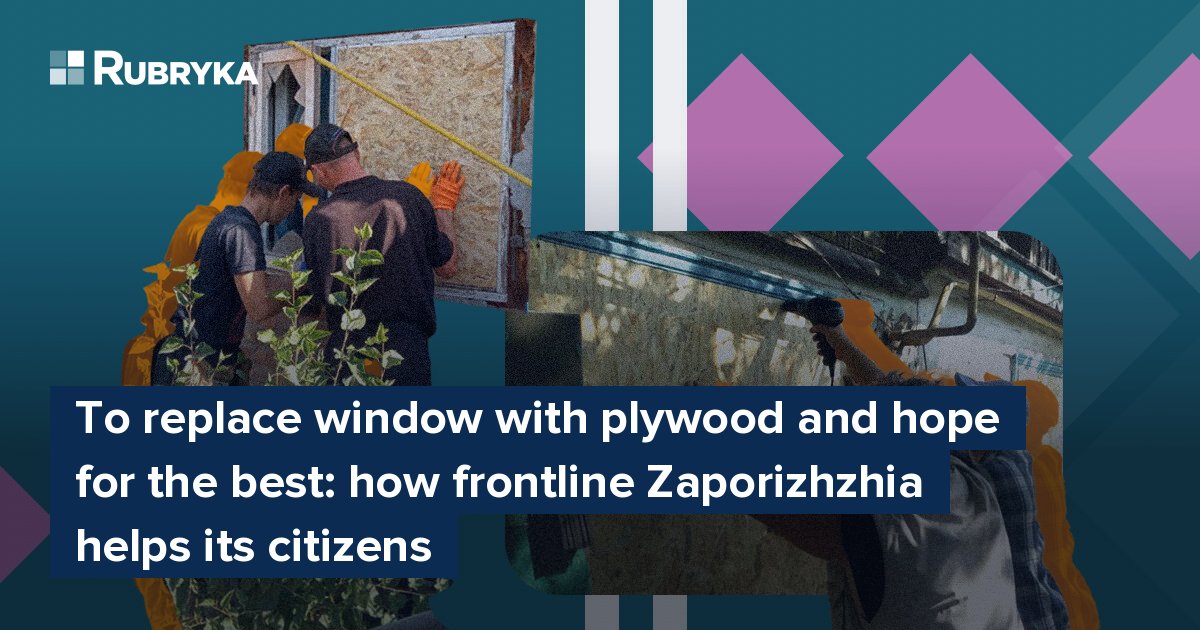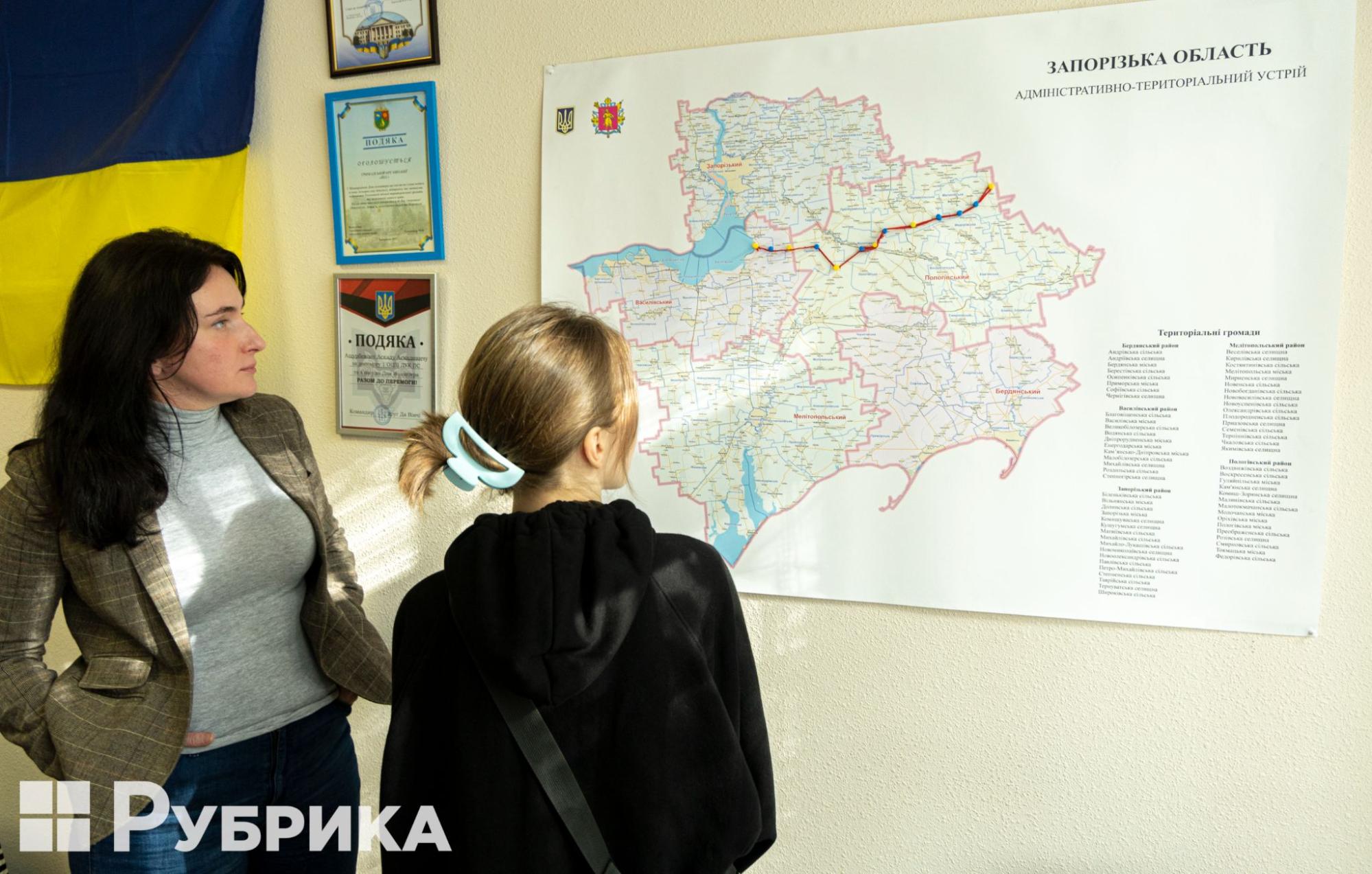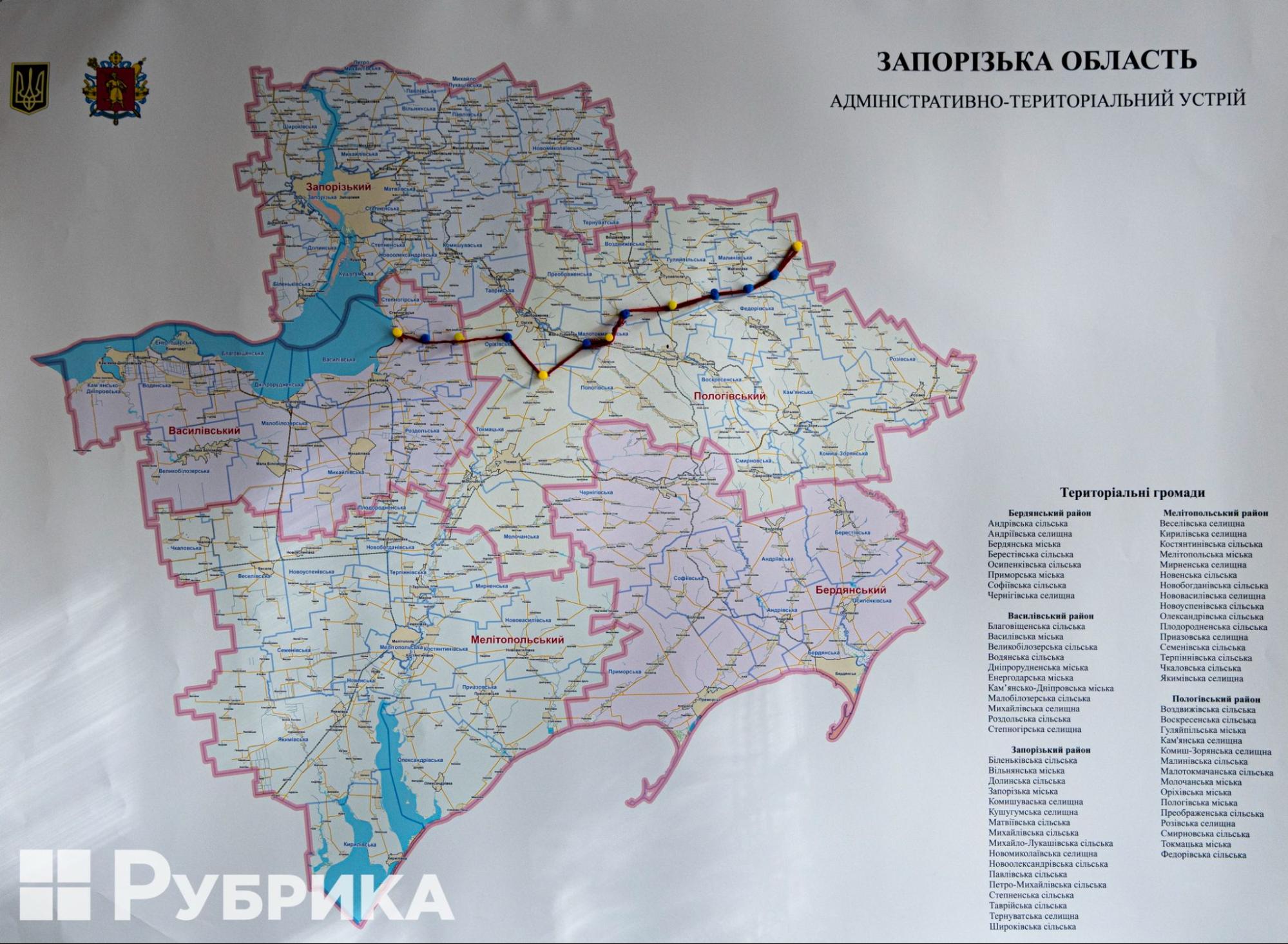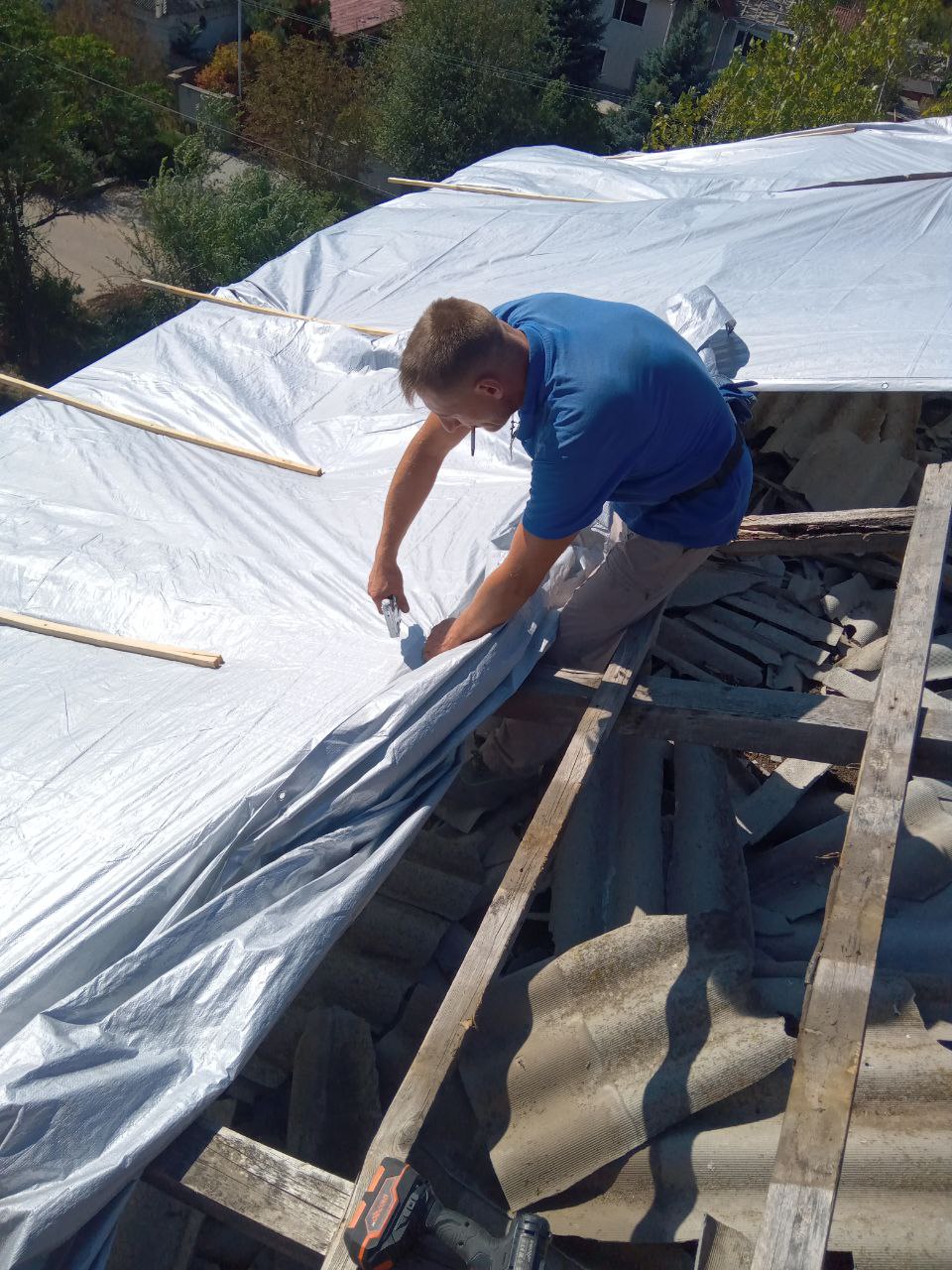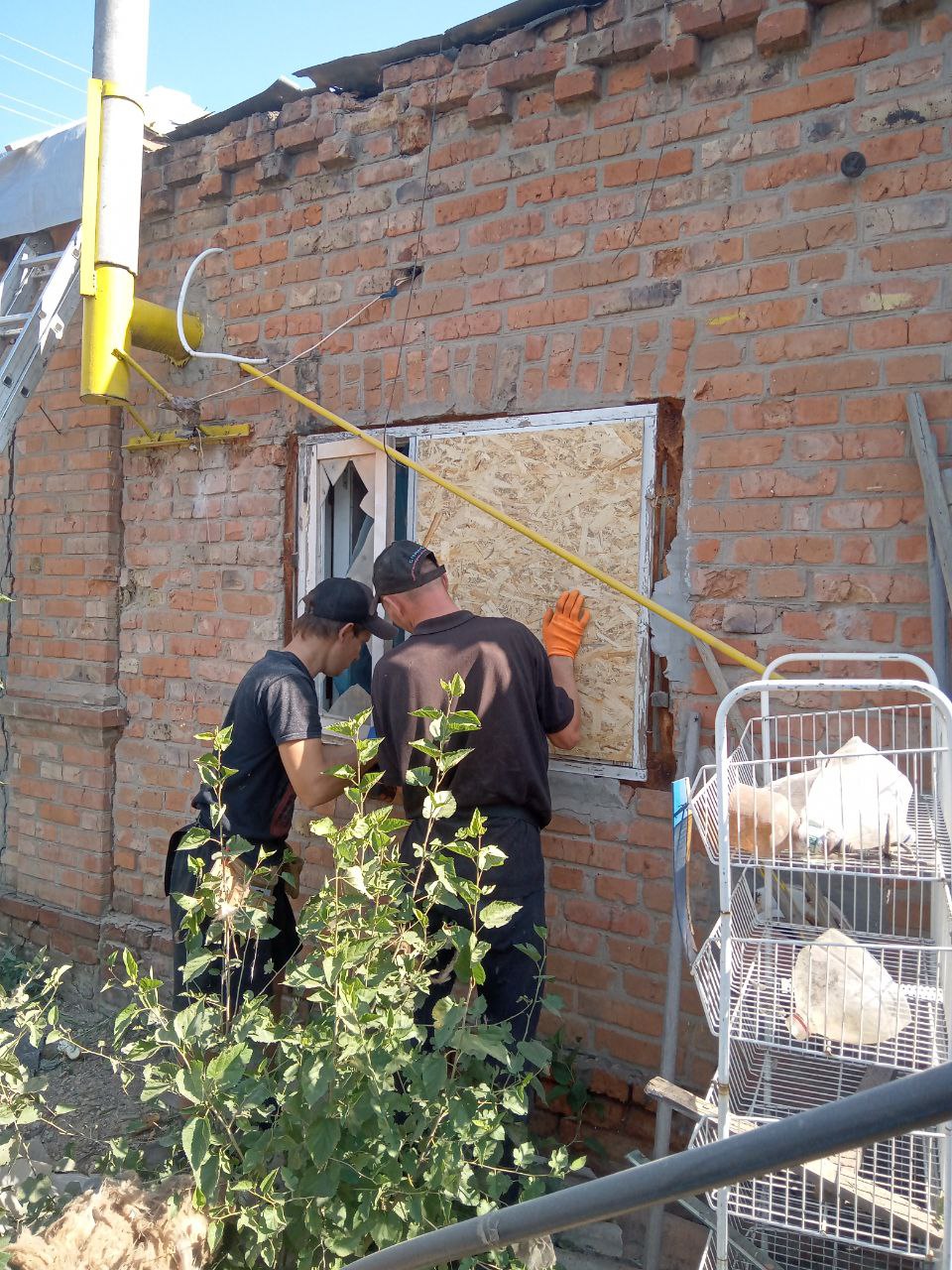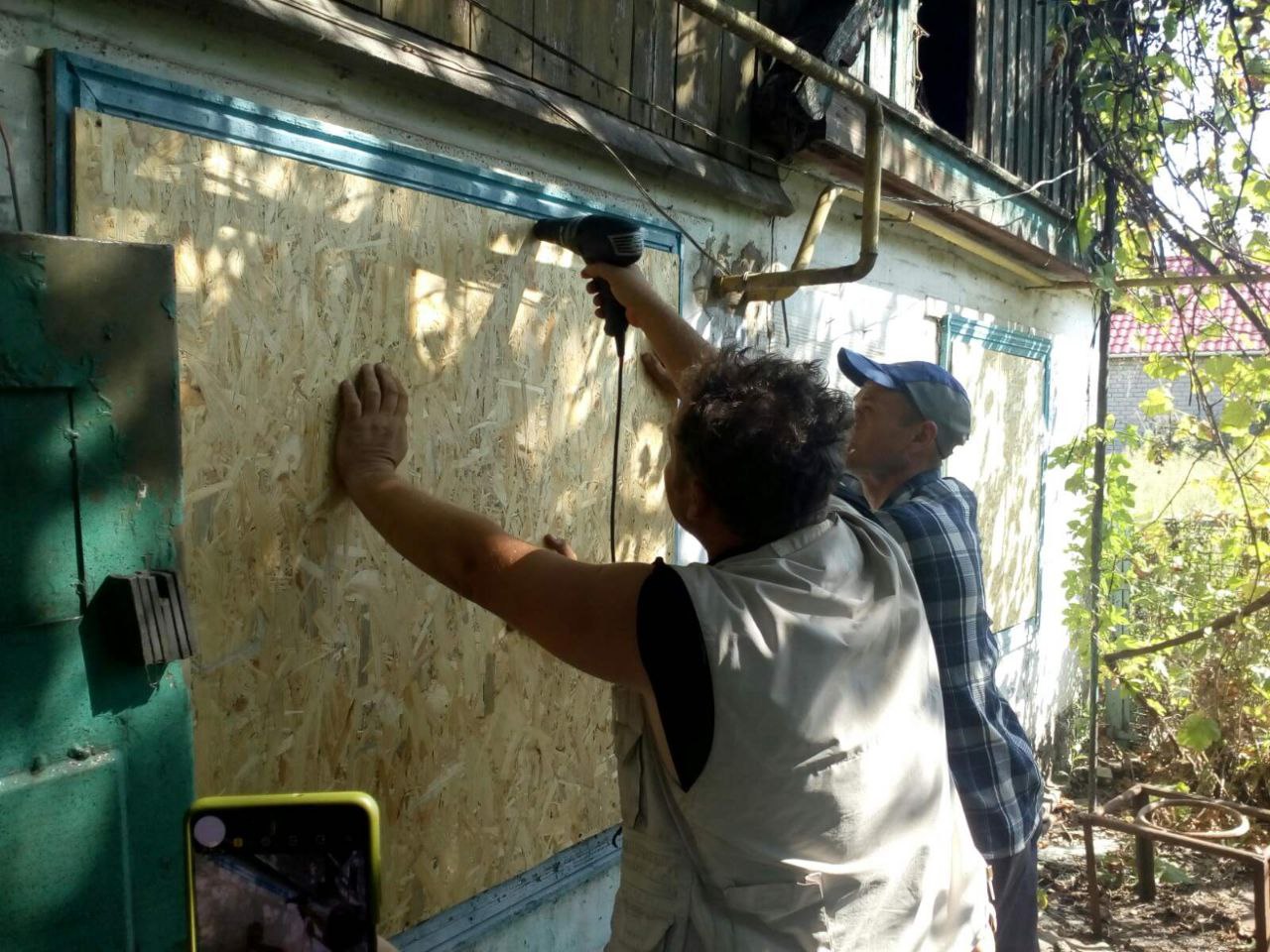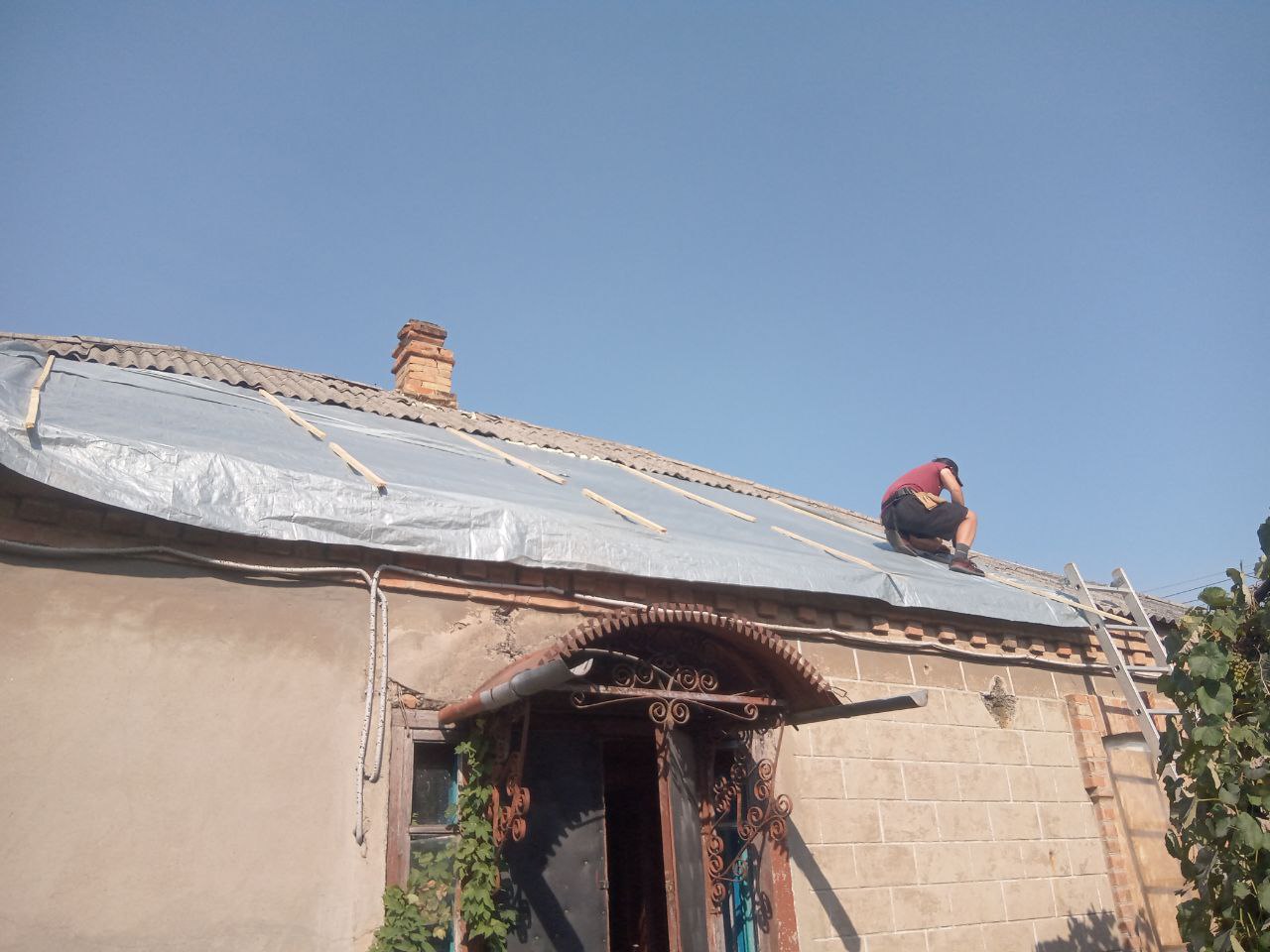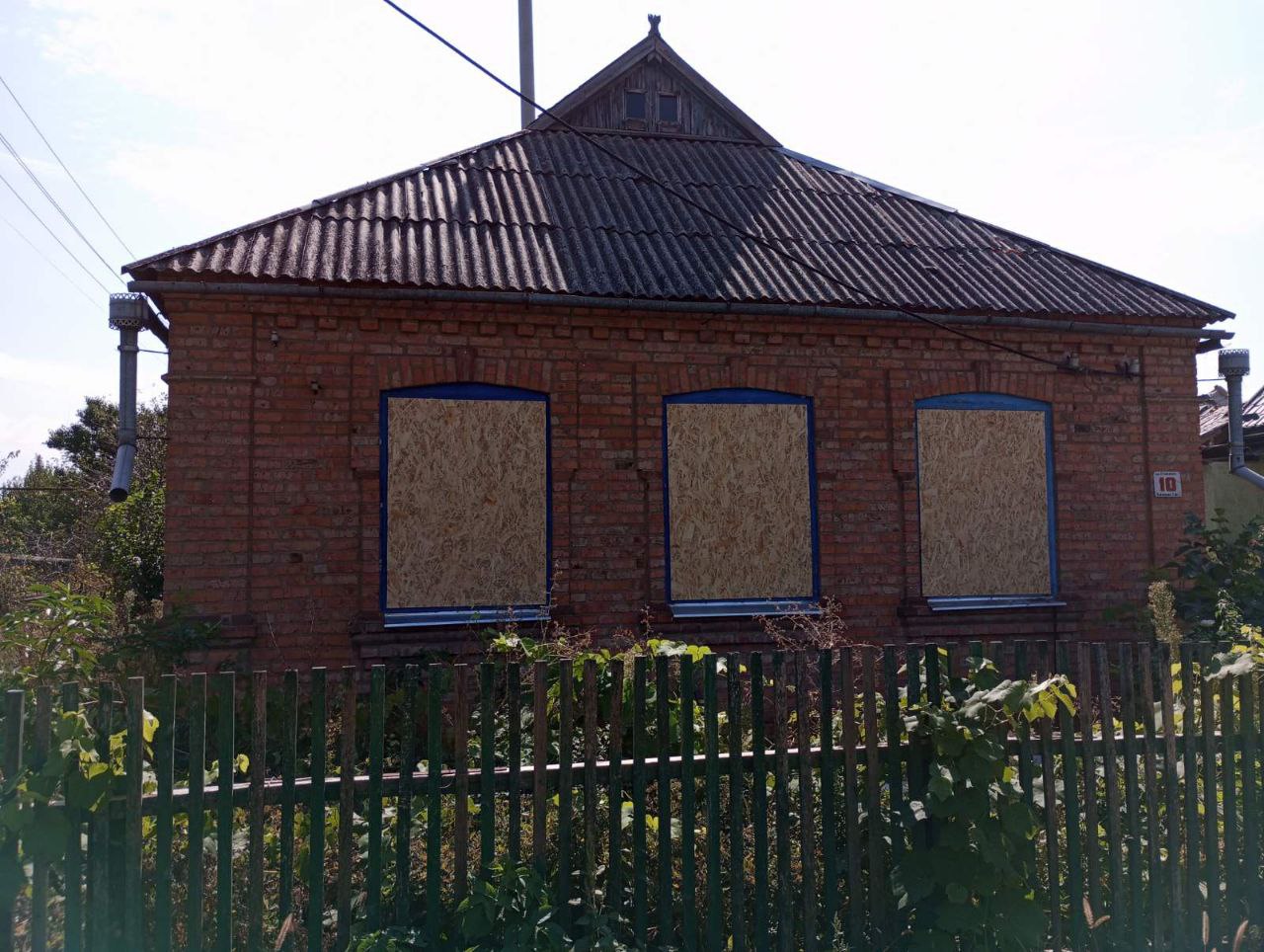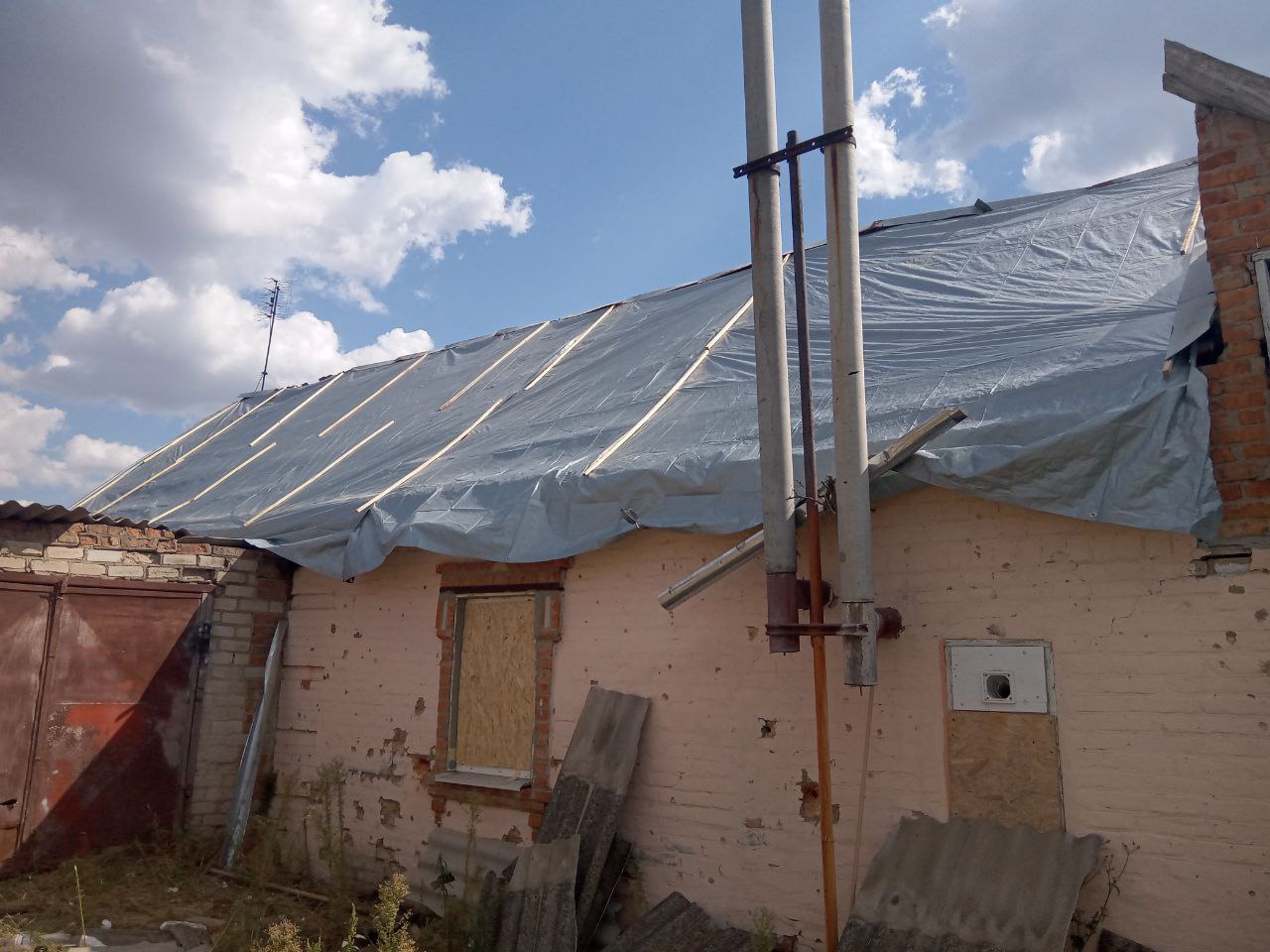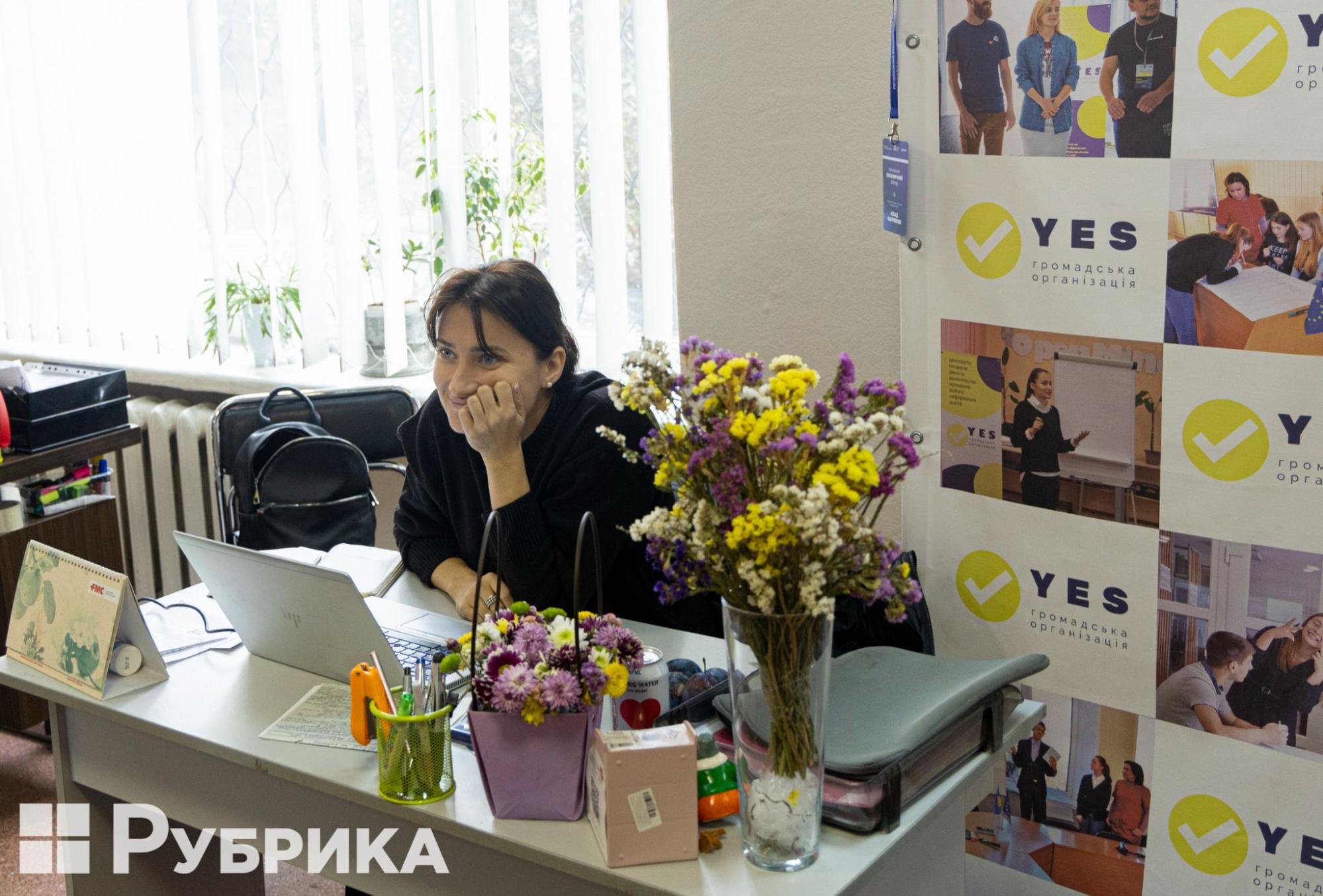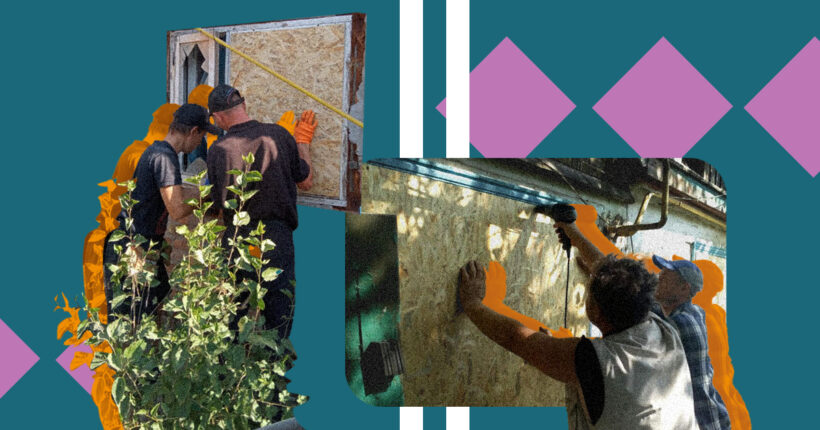
What is the problem?
Somewhere in a cozy office, the first thing you may spot is a wall completely covered with posters supporting occupied and wiped-out cities of frontline Zaporizhzhia: "Berdiansk is Ukraine," "Orikhiv, hang tight," and "Tokmak is Ukraine." These pictures are part of a project by Ukrainian artists to support people in the war-battered region.
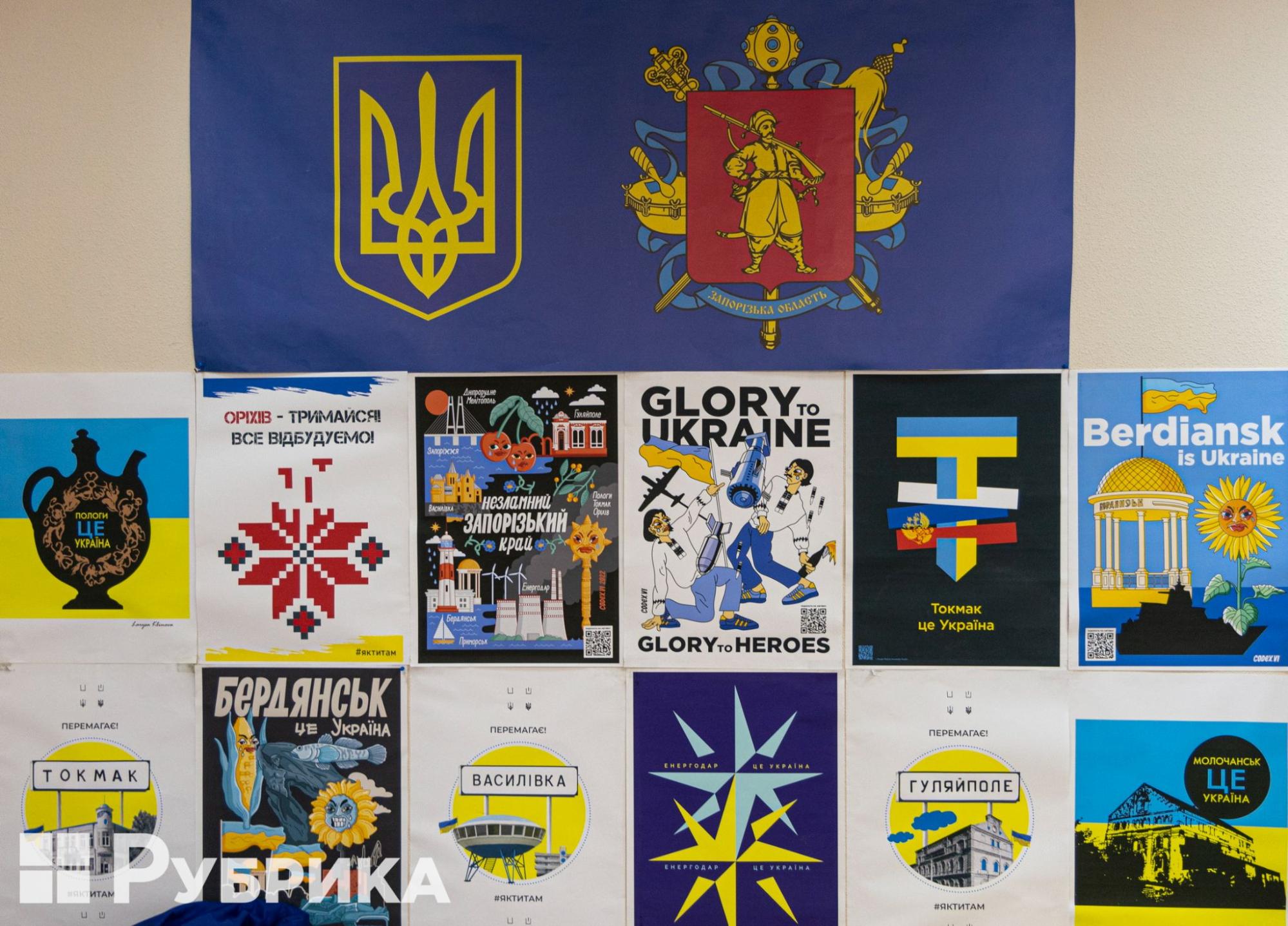
Wall with posters supporting the occupied cities/Rubryka
We are guided to another part of the room, where a large map of the Zaporizhzhia region is hanging. A line is drawn on it with thread and stationery buttons, separating Russian-occupied and free territories. About 70% of the Zaporizhzhia region is now under enemy control. Berdiansk, Tokmak, and Vasylivka are part of this number.
The map is hanging visibly enough for people who work here to keep this image in their minds. Almost all of them are Tokmak, Orikhiv, and other infamous towns.
Before the full-scale war, Olena Chahovets was a local school director in Tokmak. Now, she is a project coordinator at the "YES" NGO.
"I came to Zaporizhzhia as a refugee with a small purse and a dog. First thing I worried about is, of course, survival. But you have to produce something here. For me, this was an opportunity to help and do everything I can to be useful to my home, my country. This is probably my biggest motivation," she said.
Helping settlements close to the frontline is one of the organization's main missions. Orikhiv is one of them, being shelled several hundred times a day.
"There is not a single house in the city that has not been affected."
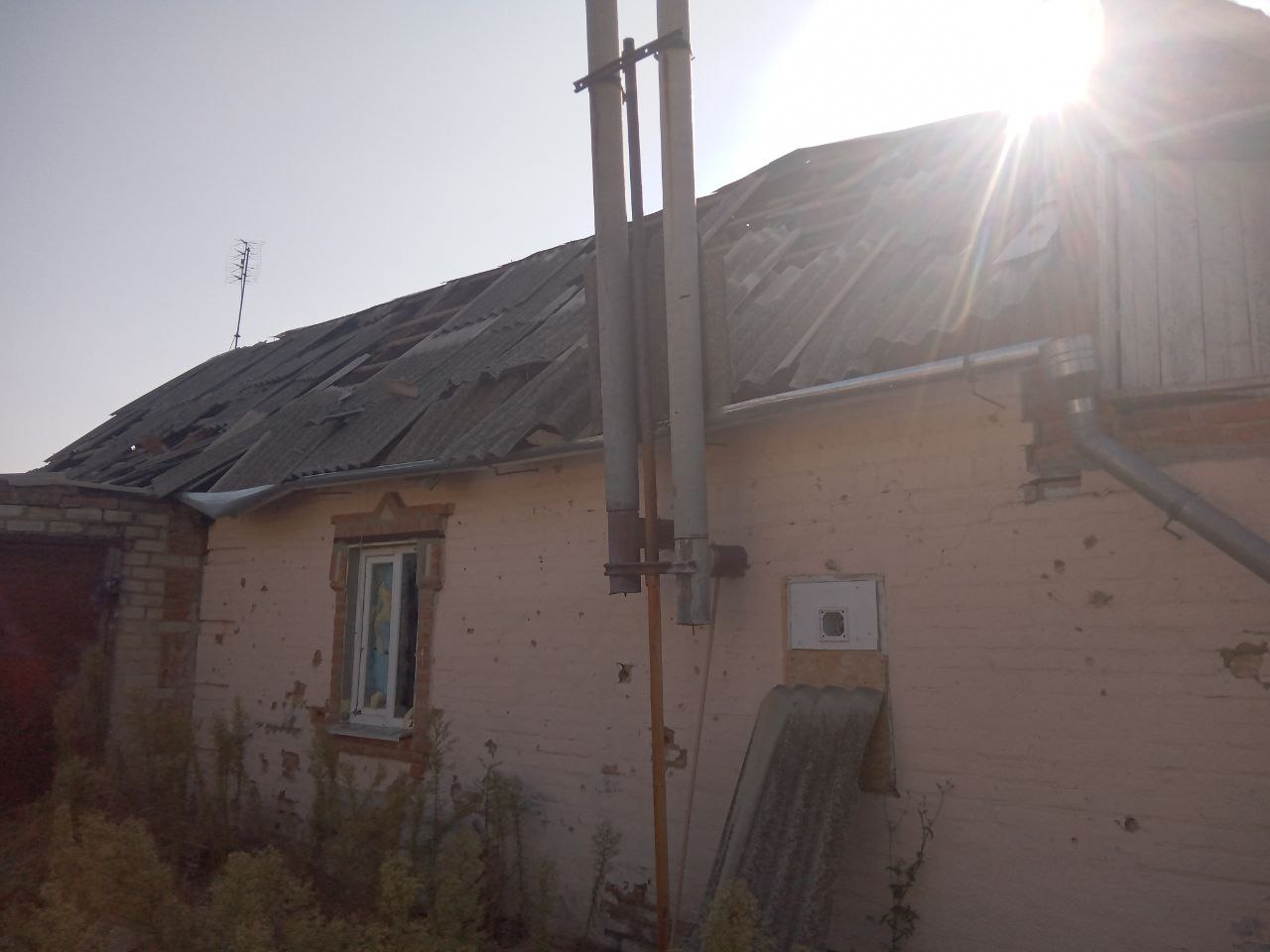
Damaged roof of a residential building in the frontline areas/"YES" NGO
For effective assistance, "YES" cooperates with other Zaporizhzhia organizations, such as "Women's Hearts of Zarichne," a north town suffering from Russian shelling daily.
"How can we just leave it? There is no electricity in the village all the time, and the child's life depends on it."
The "Women's Hearts of Zarichne" organization was formed long before the full-scale war. Initially, its goal was to control authorities to be more open to citizens.
After the all-out war, its plans changed. The organization pooled all its efforts into addressing humanitarian issues and helping the community by distributing food and hygiene kits, providing residents with stoves, firewood, warm blankets, purchasing necessary medicines, blood pressure monitors, etc.
There are plenty of residents in the community, so everyone requests aid. Viktoriia Paleha, the NGO's chief, says that only a third of the residents left, as many have returned, struggling to rent housing in another city.
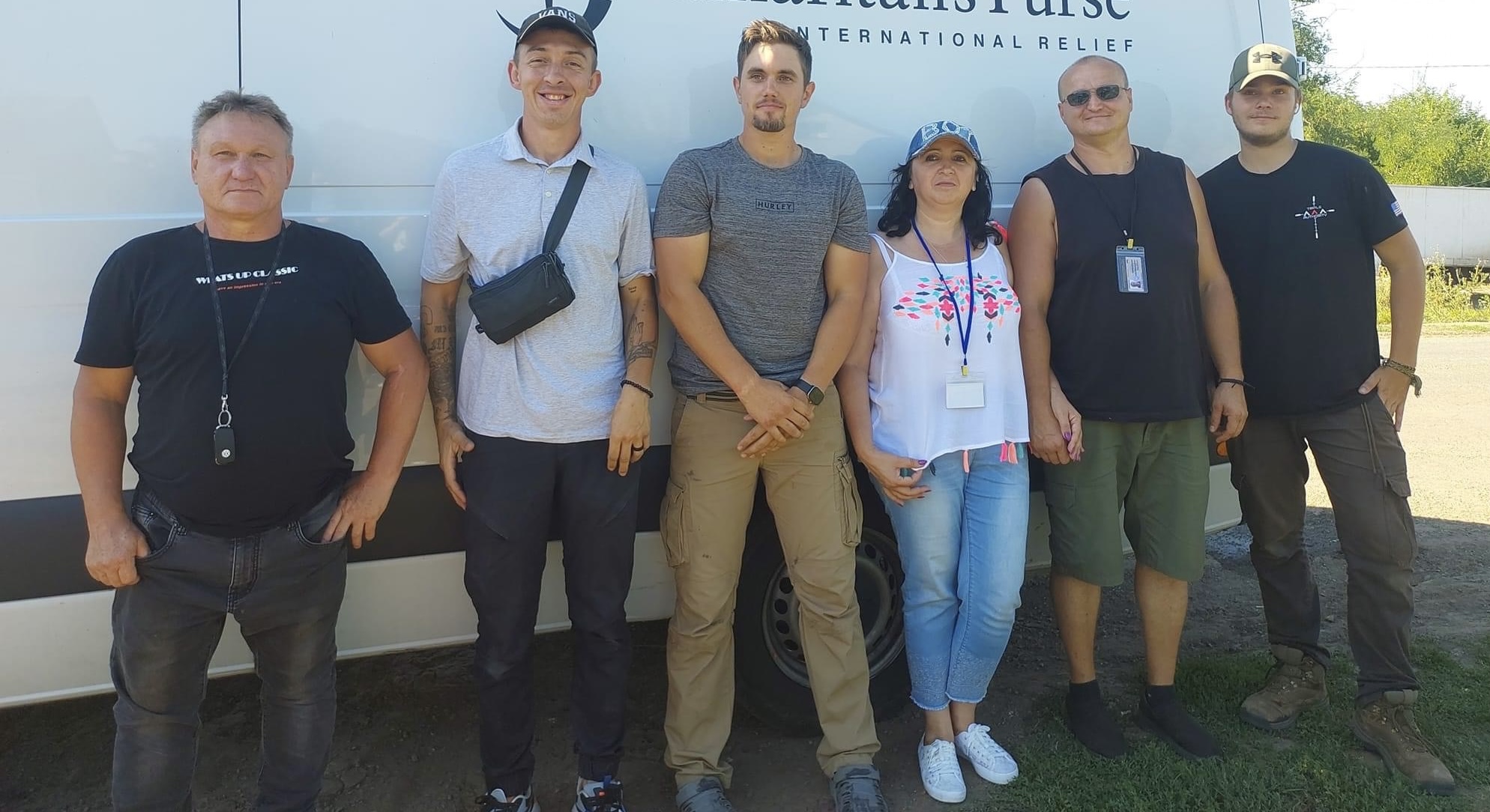
Victoria with her husband and donators/"Women's Hearts of Zarichne"
Victoria now works with her husband, Oleksandr, a driver. Other people also join the tough work. She says that they stay voluntarily, supported by grants and the family, including their daughter.
The woman jokingly says that her husband chose his job "for a while" before the invasion, yet now he is always steering the wheel to accompany Olena everywhere.
"On October 15, when there was a Russian attack, we'd been driving in the car. We hadn't even reached the office yet when the shell fell near the school, close enough to us. A few seconds ago we drove past that place. Now he [Oleksandr] won't let us go alone, he's worried for us."
The attack damaged many buildings; not a single window remained still in Victoria's apartment, and a balcony block fell down.
"Every house, every apartment has either a tarpaulin roof or an OSB board covering the windows. People cannot recover, there is not a single family that has not suffered. Some people are in such a panic, that I have no idea how they cope at home. When they come to us, they are shaking, afraid of the shelling to happen again," she said.
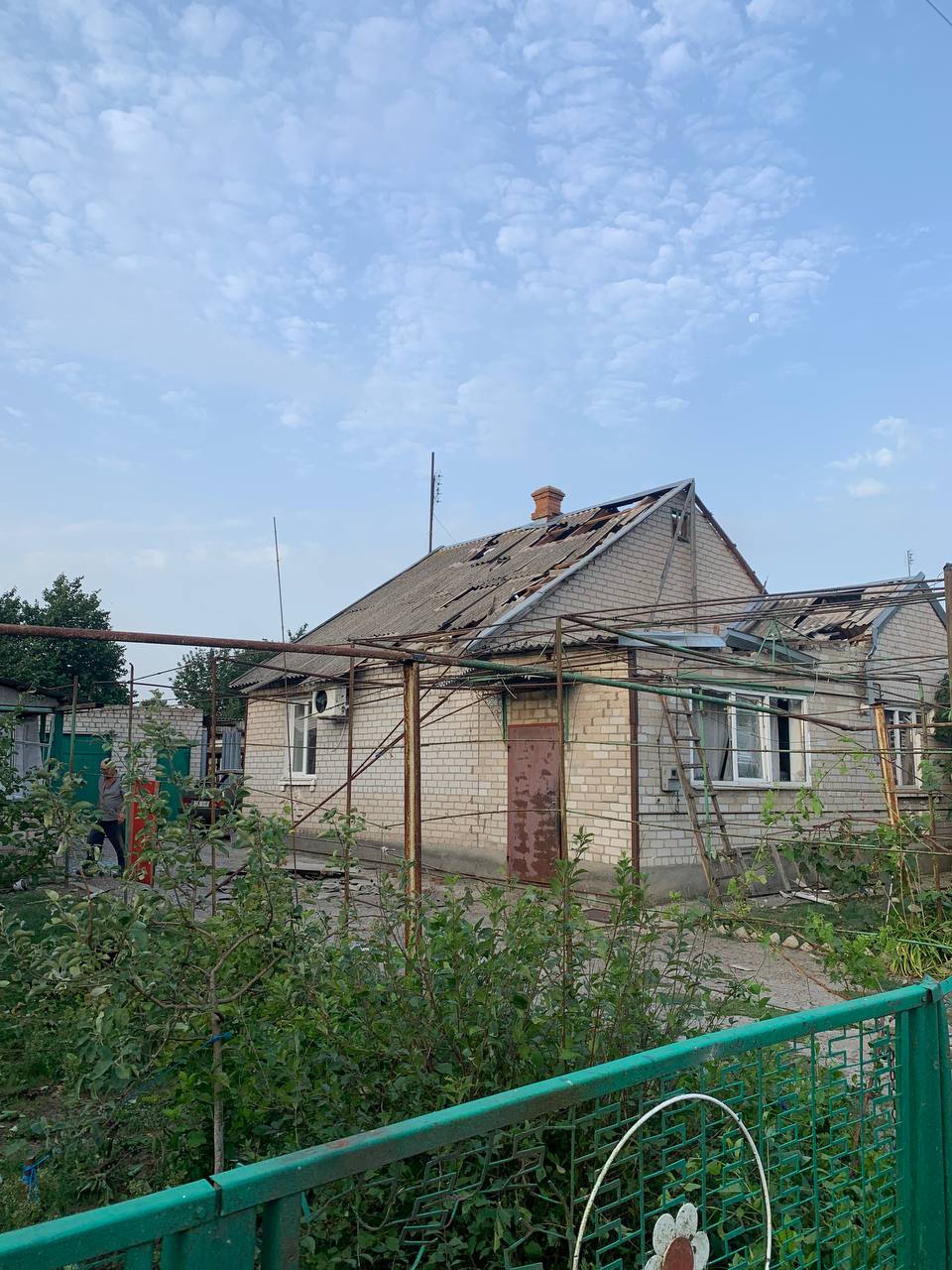
Consequences of shelling in Zarichne/Komyshuvakha territorial community
Yet, what they thought would never happen again, did on November 3. Russian forces fired a missile at the village, injuring soldiers and civilians. Victoria says there are currently people in the hospital with serious injuries.
A mother and a son who stays on life support are one of them. She'd been in the yard at the time of the attack, and, when a shrapnel hit the child's bed, miraculously not hitting the boy.
At the beginning of the all-out war, the mother refused to evacuate because the child could barely handle moving out. The family is staying at the, which is, in their opinion, the least traumatic for the child.
Since the son's life depends on electricity access, the family must ensure that their home doesn't have power outages and water supply failures. "Women's Hearts of Zarichne" is helping them with most necessities. The organization has already purchased two generators, one gasoline and diesel tank, so that the boy will always have access to electricity, even during power outages.
It's more than just a one-time donation for the volunteers. As long as their people stay in the village, they will be with them and support them anytime, they say.
"We care about this child, and that's probably the only reason we all stay here. We are ashamed to leave them alone and go somewhere else. The father also says: "How can we leave, there is a child there! There is no electricity in the village all the time, and the child's life depends on it. How can we just leave like that?" This family motivates us," Victoria said.
Her biggest dream is to make their village beautiful because it deserves this.
"We have a very beautiful village, so tiny. When there was a poultry farm, it was so amazing! We remember it, so now we want to restore it. We have a dream to build a swimming pool in our village, to have a beautiful beach, so we created a public organization. A humanitarian mission was not part of our plans, but during the war we changed our direction because there is no other way to do it now. We invested all our resources to help and support people."
What is the solution?
Broken windows and destroyed roofs are the reality of people who remain living in frontline towns and villages. They need help because they lack the resources to restore everything on their own.
Olena says the damage extent is very large, so authorities and foreign organizations provide construction materials.
"However, it is not enough to have only building resources, it is necessary to carry out all the emergency closure work. With the Czech humanitarian organization Man in Need, with the EU support, we created the project "Your Home – We Have Its Back." We decided that we would help residents of the frontline areas not by providing building materials, but also a comprehensive service for the emergency closure of the building."

Olena Chahovets/Rubryka
How does it work?
The project's significant feature is the involvement and support of residents in frontline towns.
"There are people who have helped each other before, but they did it voluntarily. Now we have the opportunity to support them financially. So it's not like a construction team comes from Zaporizhzhia and does work there, but the local residents who live there help with repairs. They are trying to improve their lives," Olena said.
The locals cover the windows with OSB boards and tighten the roofs with special tents to protect the building from more damage. Unfortunately, they can't carry out full repairs due to active hostilities.
The construction teams can also earn money because the businesses that used to employ people before the war are usually closed in frontline communities.
The project blooms in Orikhiv, Preobrazhene, and Komyshuvakha communities. Their residents can apply directly to the local administration or call the organization's hotline to get help filling out an electronic form.
It's especially nice to hear people's grateful stories, Olena says. She shares a story of an elderly woman in Orikhiv who used to invite the organization's members to visit her.
"When she called, it was also important for her to talk to us, to tell us stories. She is a very famous woman in Orikhiv, she used to perform comedy."
About the organization's activities
Apart from the "Your Home – We Have Its Back" project, YES takes part in educational initiatives, such as opening schools in rural areas of the Zaporizhzhia region. Communities will receive the necessary computer equipment and internet access, while children will have a safe place to gather together.
YES is also actively working on a project to counter disinformation in the frontline areas and help the region communicate properly with locals. The team plans to implement ideas aimed at restoring liberated territories and educational activities.
"I believe that our projects help bring victory closer, and this is our biggest dream right now," Olena said.
This article has been made with the assistance of the European Union. Its contents are the authors' sole responsibility and do not necessarily reflect the views of the European Union. YES is implementing the initiative "Your Home – We Have Its Back" within the framework of the EU-funded project "Resilient Civil Society and Media Respond to the Ukraine War," implemented by the Czech NGO People in Need in cooperation with the Prague Civil Society Center and the Netherlands Helsinki Committee.


